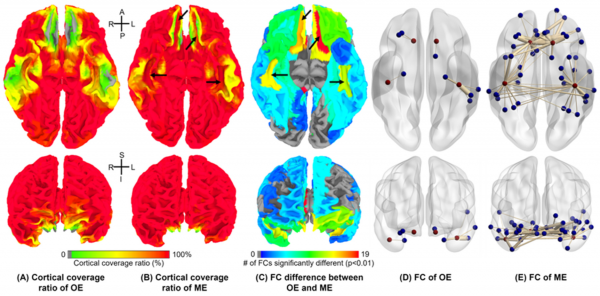2023 Improved Resting-state Functional MRI using Multi-echo Echo Planar Ima…
페이지 정보

본문
Abstract
In blood-oxygen-level-dependent (BOLD)-based resting-state functional (RS-fMRI) studies, usage of multi-echo echo-planar-imaging (ME-EPI) is limited due to unacceptable late echo times when high spatial resolution is used. Equipped with high-performance gradients, the compact 3T MRI system (C3T) enables a three-echo whole-brain ME-EPI protocol with smaller than 2.5 mm isotropic voxel and shorter than 1 s repetition time, as required in landmark fMRI studies. The performance of the ME-EPI was comprehensively evaluated with signal variance reduction and region-of-interest-, seed- and independent-component-analysis-based functional connectivity analyses and compared with a counterpart of single-echo EPI with the shortest TR possible. Through the multi-echo combination, the thermal noise level is reduced. Functional connectivity, as well as signal intensity, are recovered in the medial orbital sulcus and anterior transverse collateral sulcus in ME-EPI. It is demonstrated that ME-EPI provides superior sensitivity and accuracy for detecting functional connectivity and/or brain networks in comparison with single-echo EPI. In conclusion, the high-performance gradient enabled high-spatial-temporal resolution ME-EPI would be the method of choice for RS-fMRI study on the C3T.
Keywords: fMRI; BOLD; resting state; multi-echo EPI; compact 3T; gradient system; slew rate
관련링크
-
https://doi.org/10.3390/s23094329
2563회 연결
- 이전글Quantitative Biosignal Measurement Methods for Architecture and Construction 24.07.16
- 다음글Minimizing Susceptibility-Induced BOLD Sensitivity Loss in Multi-Band accelerated fMRI using Point Spread Function Mapping and Gradient Reversal 23.06.02
댓글목록
등록된 댓글이 없습니다.


